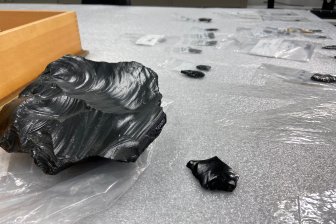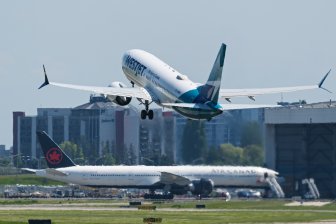British Columbia hit a grim milestone Thursday, as the death toll from COVID-19 climbed by two to reach 50 people.

Provincial health officer Dr. Bonnie Henry said B.C. had also confirmed 34 new cases, for a total of 1,370 in the province.
“I do want to recognize that so many people across B.C. are doing their part and it is making a difference,” said Henry.
“We are not over the hump yet, we are going to have a bumpy ride for a while. We are holding our own, and we are keeping it down, but we all need to continue to do this.”

Henry again resisted calls Thursday to release modelling on possible total death tolls from the virus, as the federal government, Alberta and Ontario have done.
“Our modelling is about what do we need to prepare for, and as you can see the deaths are not something that can be predicted, it depends on how your outbreak evolves.”
Of B.C.’s 50 deaths, 30 have been residents of the province’s seniors homes.
Care home staff limited to one workplace
The need for health-care workers to take jobs in more than one facility has been a key factor in the wave of outbreaks in seniors’ homes, Dr. Henry said Thursday.
“That has been brought to the forefront during this pandemic, and it is a part of the tragedy that we’re dealing with,” said Henry.

As of Thursday, a previously-announced public health order barring health-care staff from working in multiple facilities took effect across the province.
Health Minister Adrian Dix said a plan had been negotiated with both unions and public and private employers that will ensure an estimated 4,200 health-care workers get a fair wage and scheduling stability.
Limiting health-care workers to a single site is expected to cost the province about $10 million per month, said Dix.

The number of cases linked to long-term care and assisted living facilities climbed by nine to 235 on Thursday.
Of those cases, 143 were residents and 92 were staff.
Dr. Henry said an outbreak in one long-term care facility has now been resolved, leaving 20 other homes still grappling with the virus.
Long weekend plea
In a reprise of a message officials have been pressing all week, Dr. Henry pleaded with British Columbians to stay home on the Easter long weekend.
The public has been asked to avoid all non-essential travel, and parks and parking lots around the region have been closed to try and keep people out of public spaces.

“Lets make this a weekend to unwind but to be kind,” said Henry.
“It’s a weekend for us to stay home and to appreciate what we have. Now is not the time for travel unless it’s absolutely necessary.”
Henry suggested a variety of safe activities over the weekend, from reaching out to an elderly neighbour to making and dropping a meal off for someone, to holding a virtual block party.
She added that going for a walk or a bike ride is safe, so long as people can maintain two metres (six feet) distance from others.
Hospitals and protective equipment
Of B.C.’s confirmed cases, 858 have fully recovered, while 132 are in hospital, 68 of them in intensive care.
Dix said there were just under 4,500 empty hospital beds in the province.
Dix said B.C. was still struggling to source personal protective equipment (PPE), but had made small strides in recent days.
He said a combination of donations, federal contributions and provincially sourced equipment had netted B.C. about 1.8 million surgical masks and 173,000 N95 respirators.
Earlier Thursday, Canada surpassed 20,000 lab-confirmed cases of COVID-19 as Prime Minister Justin Trudeau said there would be no return to “normality” until a vaccine was developed for the virus.
Experts say it could be a year to 18 months for a vaccine to be developed.





Comments